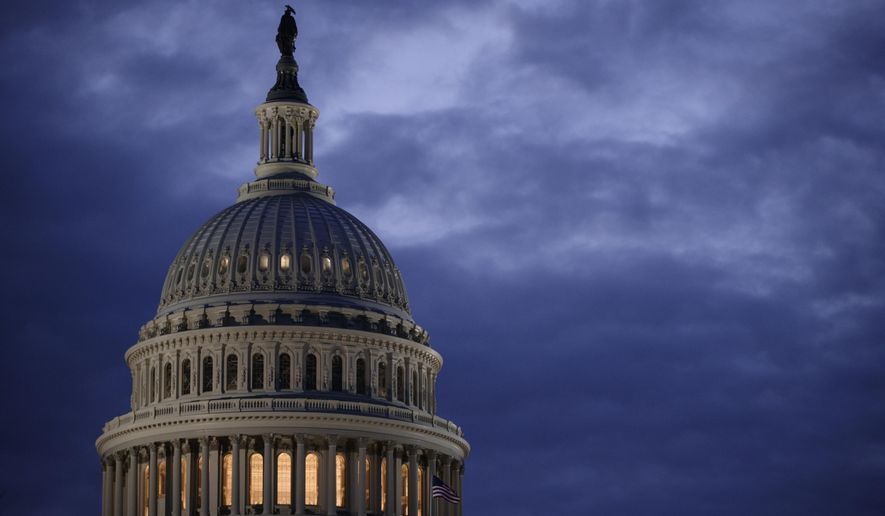OPINION:
Everywhere there’s talk about the spread of misinformation. Most of the complaints are directed at private individuals on social media or public figures such as reporters or politicians.
But what about when government agencies spread misinformation? Shouldn’t that be a concern, too?
More than 20 years ago, Congress thought so and passed the Information Quality Act. It requires federal agencies to take steps to ensure the accuracy and credibility of the information they disseminate.
A key provision of the law is a requirement that the public be able to seek and obtain the correction of erroneous government information. The public is supposed to serve as a check on agencies by helping to enforce the law.
But to date, courts haven’t found agency actions taken under the Information Quality Act (IQA) to be judicially reviewable. As a result, agencies often feel no need to comply with the law.
Congress needs to fix this. Here are two simple things lawmakers should do to ensure the law works as intended.
First, Congress should make it clear that IQA actions are judicially reviewable. When they know that courts will review their actions, agencies will no longer ignore the law’s requirements.
Second, Congress should establish clear requirements for agencies to ensure the credibility of their information. For example, influential scientific information used and disseminated by agencies should first pass stringent agency peer reviews. Federal agencies should use sound science, not junk science.
Theoretically, such requirements now exist. But, as applied in practice, agencies have had far too much discretion in determining whether to meet many of these requirements. If an agency can decide whether to comply, it isn’t a requirement.
These two changes would greatly improve the quality of government-provided information. And make no mistake, this would be a big deal.
The federal government plays a unique role in spreading information to the American people and the world. When federal agencies disseminate information, from recommendations regarding the pandemic to the impact of air pollution, they are shaping the public’s understanding of issues and forming conventional wisdom.
The federal government’s “seal of approval” provides significant credibility in the eyes of the public.
More importantly, though, government-disseminated information, particularly scientific information, commonly shapes regulations that affect almost every facet of life.
If agencies are basing regulations on junk science or other misinformation, this imposes tremendous costs on Americans without any benefits. The problem doesn’t end there. Agencies across the government will often continue to use this misinformation to push flawed policies.
Once regulations are on the books, they are very difficult to remove. And the costs associated with the flawed regulations, and any future regulations built upon their flawed foundation, also will be difficult to remove.
If properly implemented, the IQA would require agencies from the outset to only use sound science and disseminate accurate information. There would be proper peer review and strong transparency procedures in place.
When the government did disseminate misinformation, agencies would take actions on their own initiative to correct any problems once they became aware of their existence.
And the public would serve as a check on agencies to ensure that they are not spreading or using misinformation. If necessary, they could take agencies to court, and judges would review and properly address agency actions, including correcting misinformation.
Judges wouldn’t be empowered to make policy decisions or to second-guess policy decisions. Rather, they would focus on whether the information supporting those decisions was accurate and unbiased. They also would make sure that agencies don’t ignore important, clear-cut procedural requirements.
By taking these common-sense steps to clarify existing law, Congress can promote confidence in government information and the regulations issued by agencies that rely on this information. Congress would also be improving the policy decisions that directly affect all Americans.
There’s no excuse for not taking such simple steps to address government misinformation.
• Daren Bakst is the Heritage Foundation’s senior research fellow in regulatory policy studies.




Please read our comment policy before commenting.